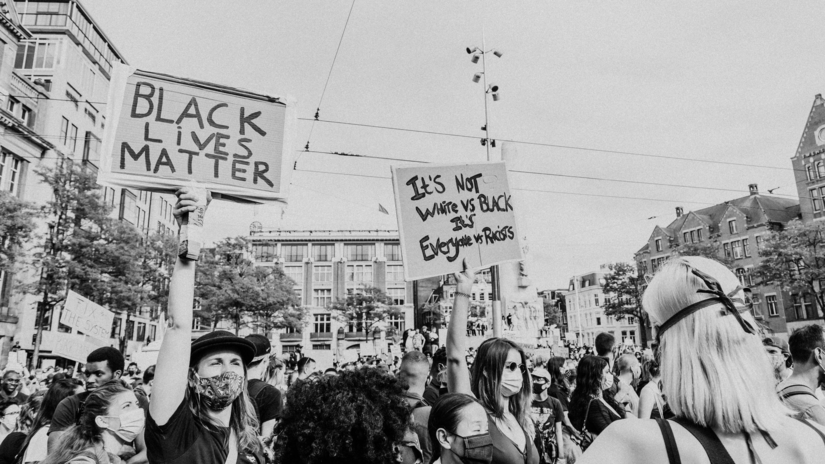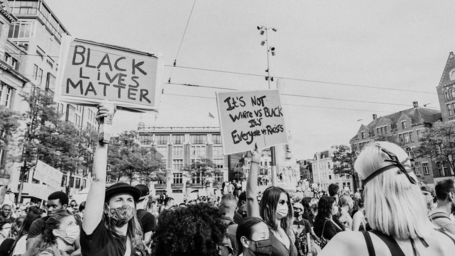#nojusticenopeace, #blacklivesmatter, #justiceforahmaud #justiceforbreonna, #justiceforgeorge, #blackouttuesday
Amid all of the social unrest from the raging pandemic, to the approaching presidential election that could quite possibly be life or death for some, there is a major shift occurring when it comes to activism. The brutal murder of George Floyd on May 25, 2020 is thought to have sparked greater awareness for the Black Lives Matter movement. Though in some aspects the current Black Lives Matter protests seem to be fighting for something different than the Civil Rights movement, there continues to be social forces causing the reemergence of social unrest.
Colonialism is something we have all heard about and maybe studied in school. On the surface, colonialism can be portrayed as a harmful chain of events in history class. The problem here is that colonialism isn’t portrayed for what it really is. A continuing cycle of racism, sexism, homophobia, poverty, and many other hierarchies of social power.
What does colonialism have to do with the current Black Lives Matter protests you may be asking. Well, it has everything to do with our current social unrest. Colonialism is at the core of race issues throughout the world, from its prioritization of whiteness, masculinity, heterosexuality, and wealth. Institutions and societal beliefs shaped by colonialism make existence a lot harder for any person outside of those realms. Marginalized communities have been restrained by the perpetuation of these colonial standards, and this needs to change.
The Black Lives Matter movement and social movements of the 1960s are the response to colonial hierarchies that are imposed on marginalized people. Although the motivations are alike, looking at modern activism compared to activism in the 1960s you can see a particular difference: the use of social media.

Surly most of you have seen the hashtags above or have used them in your own posts. Social media has both created a greater awareness in society as well as created an environment to engage in activism. However, performative activism describes the activism done by individuals to gain a greater social standing instead of actually being devoted to a specific cause. The Black Lives Matter movement has gained support from across the globe thanks to instant messaging and high quality photos/videos. This high speed internet has allowed anyone to post their opinions without actually taking action.
On June 2, 2020 people around the world participated in an online protest called Black Out Tuesday. To show their solidarity everyone posted a black screen with the hashtag #blackouttuesday. Sure this was a great way to stand together and voice an opinion, but it provided an easy opportunity for performative activism. Despite how empowering it was to see so many people posting black screens I couldn’t help but wonder, “are all of these people even taking action?”. Taking action can include donating to organizations like Black Lives Matter, signing petitions, voting racists out of office, and especially drawing attention to the problematic beliefs and opinions of friends, family, and peers. Scrolling through my phone I recognized many names of people who had never taken action for any social movement, so why were they joining in Black Out Tuesday? To answer simply, they posted this black screen for popularity and to follow a new trend.
Performative activism has defeated the whole purpose of movements such as Black Lives Matter. By simply reposting a black screen what have you done? So next time a protest for a greater cause is popularized, think for a moment, is this performative or making a change?



